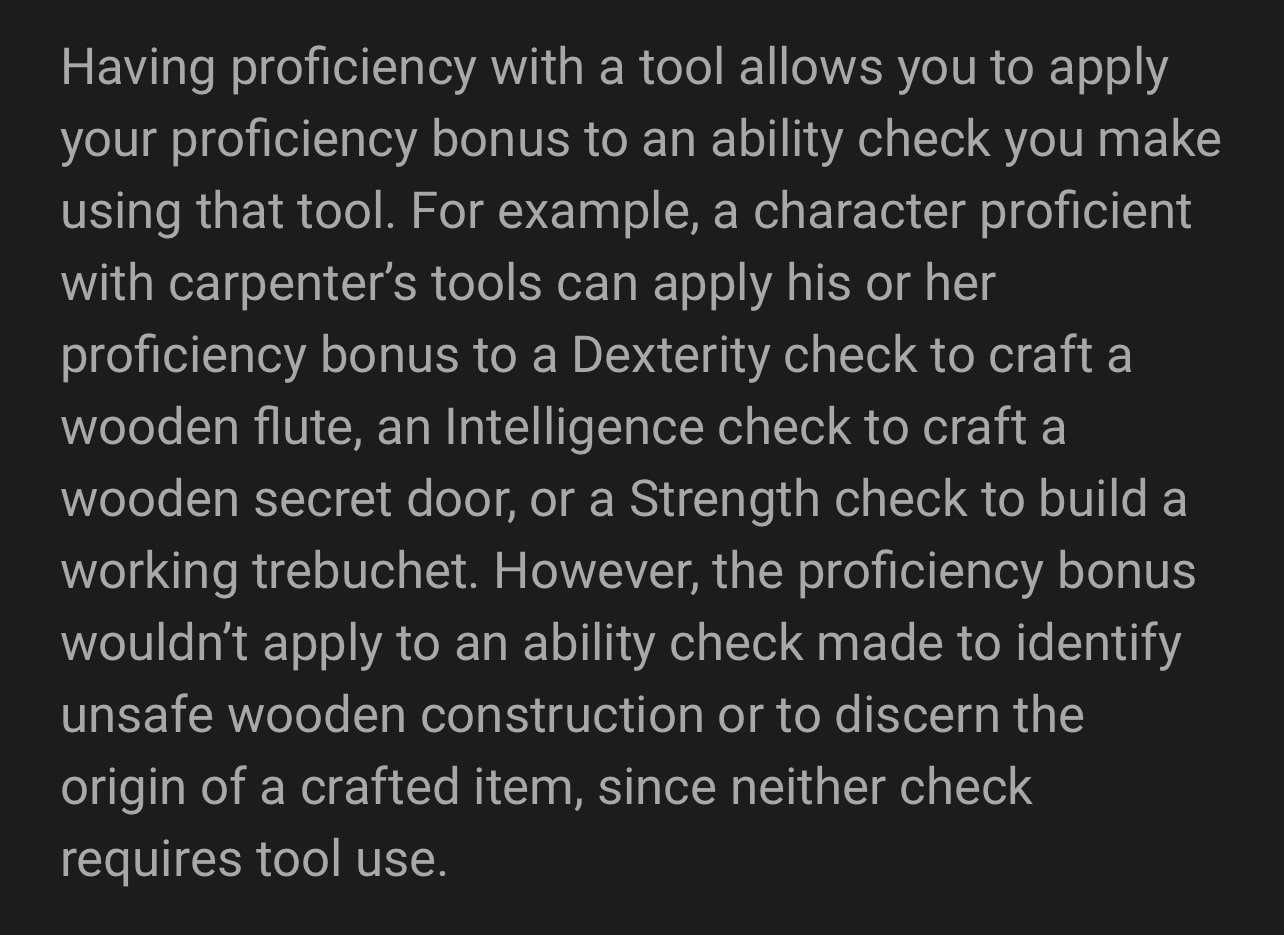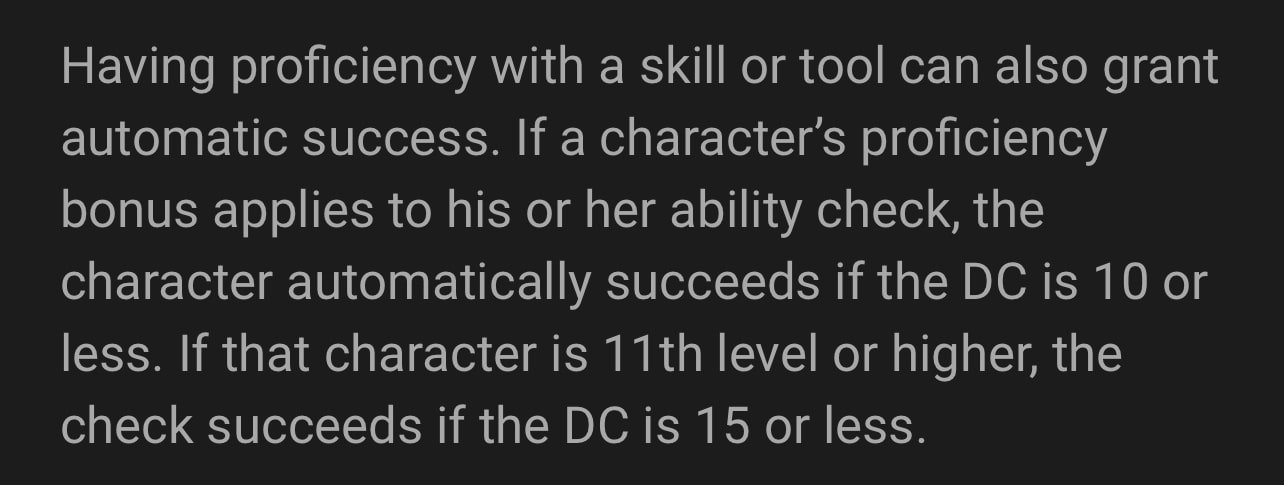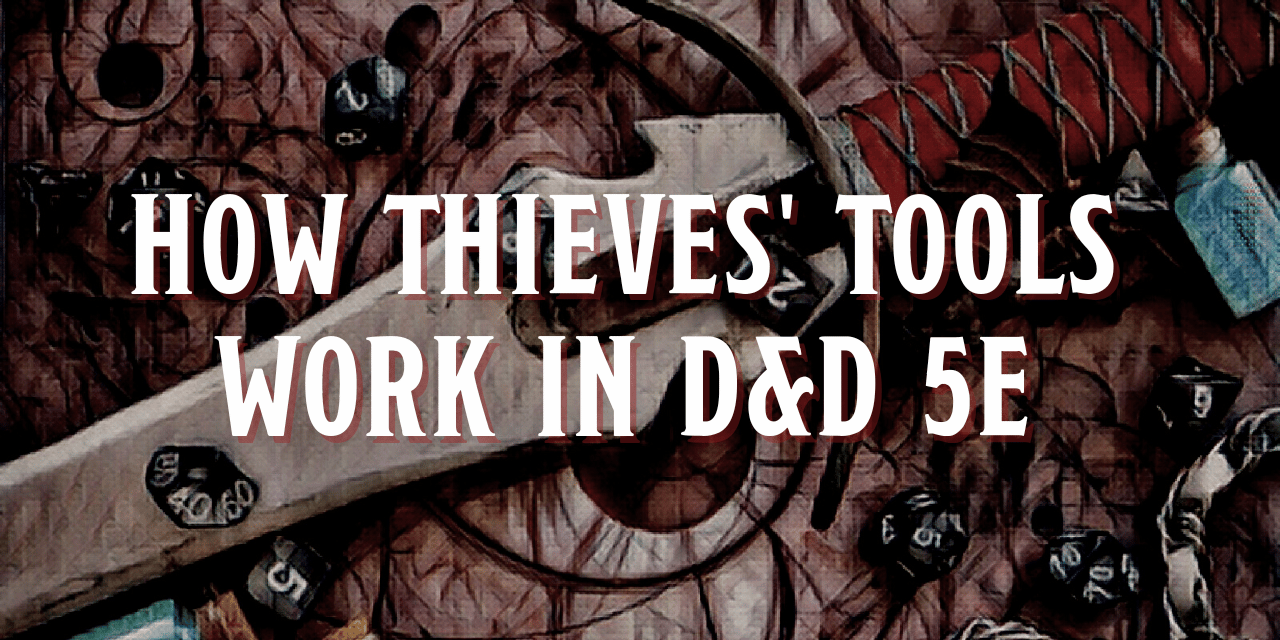| Key Takeaways |
|---|
| 1. Players can use Thieves' Tools without Proficiency |
| 2. You do not get Disadvantage for using Thieves' Tools without Proficiency |
| 3. To lockpick in DnD 5e if you're Proficient with Thieves' Tools, roll d20 and add your Dexterity modifier and Proficiency bonus |
Exactly what check does a player make to pick a lock with Thieves' Tools in D&D 5e?
It depends. There are a few different ways to handle lockpicking and using Thieves' Tools in Fifth Edition: rules as written (RAW) and homebrew/house rules.
Is one better than the other? Well, that depends on your table and DM. Let’s take a look at the differences.
- Thieves' tools are a set of tools that include a small file, a set of lock picks, a small mirror mounted on a metal handle, a set of narrow-bladed scissors, and a pair of pliers.
- Proficiency with thieves' tools lets you add your proficiency bonus to any ability checks you make to disarm traps or open locks. Anyone can use thieves' tools, however.
- For traps, you must make an Investigation check to find it, then a Sleight of Hand check separately to actually disarm it. The DC of the check depends on the difficulty of the trap.
- To open a lock, you must simply make a Dexterity (Sleight of Hand) check. The DC of the check depends on the difficulty of the lock.
- If you are proficient with thieves' tools, you can also use them for pickpocketing. To do this, you must make a Sleight of Hand check against the target's Perception. If you succeed, you can steal a small object from the target's pocket.
What are Thieves' Tools?
According to the Player's Handbook, Thieves' Tools “include a small file, a set of lock picks, a small mirror mounted on a metal handle, a set of narrow-bladed scissors, and a pair of pliers.”

A lot of people have the idea that Thieves' Tools are just lockpicks, which isn't true. Instead, you have access to what is basically a multitool. However, in terms of game mechanics, nothing really changes. You roll a D20 and add some modifiers. And there are a few different ways to handle that.
Thieves' Tools: Rules as Written
The Dungeon Master's Guide says, “Having proficiency with a tool allows you to apply your proficiency bonus to an ability check you make using that tool.”

An ability check for lockpicking with Thieves' Tools is almost always going to be Dexterity because that represents nimbleness, agility, and finesse, which are very important for the task.
For example, if a level 3 Rogue proficient with Thieves' Tools and 17 Dexterity wanted to pick a lock on a chest, they would roll a D20 and add 5 to the results—+3 (for Dex), +2 (for Tool Proficiency).
Note that’s not a skill check, such as Sleight of Hand or Perception, but one that uses primary stats like Strength or Dexterity.
If a character without Thieves' Tools proficiency were to attempt the same thing, they would only add their Dexterity modifier to the check, nothing else. Being proficient doesn’t mean they’re more likely to succeed than non-proficient PCs. Other than what the +2 bonus to their roll represents.
TL;DR
Using the Rules as Written in the Dungeon Master's Guide, proficiency with Thieves Tools only affects an ability check (Dexterity, probably) by adding a small bonus to the roll. That's it and that's all.

That’s not to say there aren’t other ways to use them. I tend to use house rules over RAW for lockpicking and Thieves' Tools when I DM to make things feel a little more dynamic.
Example House Rules for Thieve’s Tools and Lockpicking
At my table, I combine the RAW example of adding the character’s proficiency/ability modifier to their D20 roll. However, I also incorporate skill checks to the same roll to integrate it more with the actual roleplay of what the character is doing. Here's how it works:
For example, if the player is trying to be sneaky about unlocking it and not be heard, have them roll a Sleight of Hand check instead of straight Dexterity.
Skills in 5e already include the character's ability modifier, so a player not proficient with Sleight of Hand has the same bonus as they do to Dex. However, if they are proficient in Sleight of Hand, then the skill has an extra proficiency bonus already added in.
Then I add the proficiency bonus for the tool—if they have one. This means that, yes, this will sometimes stack proficiency bonuses.
But For a Good Reason
The character is using two separate things they're trained in, which may or may not be related.
Think about it like this: someone can be trained to use of Thieves' Tools and be really good at it, but they're loud and jingle-jangle the lockpicks as they work (proficient in Thieves' Tools, but not with Sleight of Hand). Another person might have nimble, quick fingers when working under pressure, but they can never quite get the grasp of using the picks without breaking them (proficient in Sleight of Hand, but not with Thieves' Tools).
Additionally, you might also want them to roll Perception before they start picking (or use their Passive Perception). Why? The lock might be trapped. Perception could give them a chance to notice it, and have an opportunity to disarm it or bypass it. After that, they might want to use Investigation on similar kinds of locks.
Having lockpicking and Thieves' Tools be more than just a simple ability check enhances storytelling and can give advantage to considerations made during character building. That's why I always choose to make house rules for Thieves' Tools over going with RAW.
Frequently Asked Questions
Can I use Thieves' Tools even if I am not Proficient?
Yes. You 100% can. According to Jeremy Crawford, chief game architect for D&D:
“Proficiency isn't required to use a tool, unless that tool's description says otherwise. Other things in the game might make exceptions and require proficiency, but those exceptions have no effect on how tools work otherwise.”
When looking at the rules for tools in the DMG, there's nothing that says a character can't use a tool without being proficient. They just aren't trained to use it. So they will not add a bonus to their roll. After all, anyone can grab a guitar and strum, but only those proficient with it can play music.
Are there Variant Rules for Thieves' Tools?
Yes! The DMG offers the variant rule of automatic successes based on DC and character level: automatic success if the DC is 10 or less until level 10, which increases to DC 15 at level 11.

Personally, I’m not a fan of this variant rule, but you might consider it if you want tool proficiency to mean a bit more than RAW.
Do I get Advantage because I am Proficient with a Tool?
No, sorry. In D&D 5e, you don’t get to roll with Advantage, for example, if you’re proficient with a tool. On the other hand, you don't get Disadvantage if you're not proficient.
Any other questions or suggestions about Thieves' Tools?
Let us know in the comments so I can add it to the FAQ (and the games I DM!) Hopefully, this has helped explain how Thieves' Tools work in 5e and your lockpicking will go a little more smoothly from now on.
Any other questions or suggestions? Let us know in the comments!
If you're looking for even more Dungeons & Dragons goodness, check out the best free one shots for fifth edition, our list of 9 of the most amazing titles on DMs Guild, or our review of Spelljammer: Adventures in Space!


[…] sure to check out our other D&D content, such as how to use Thieves' Tools and the 9 amazing products you can only find on DMs […]